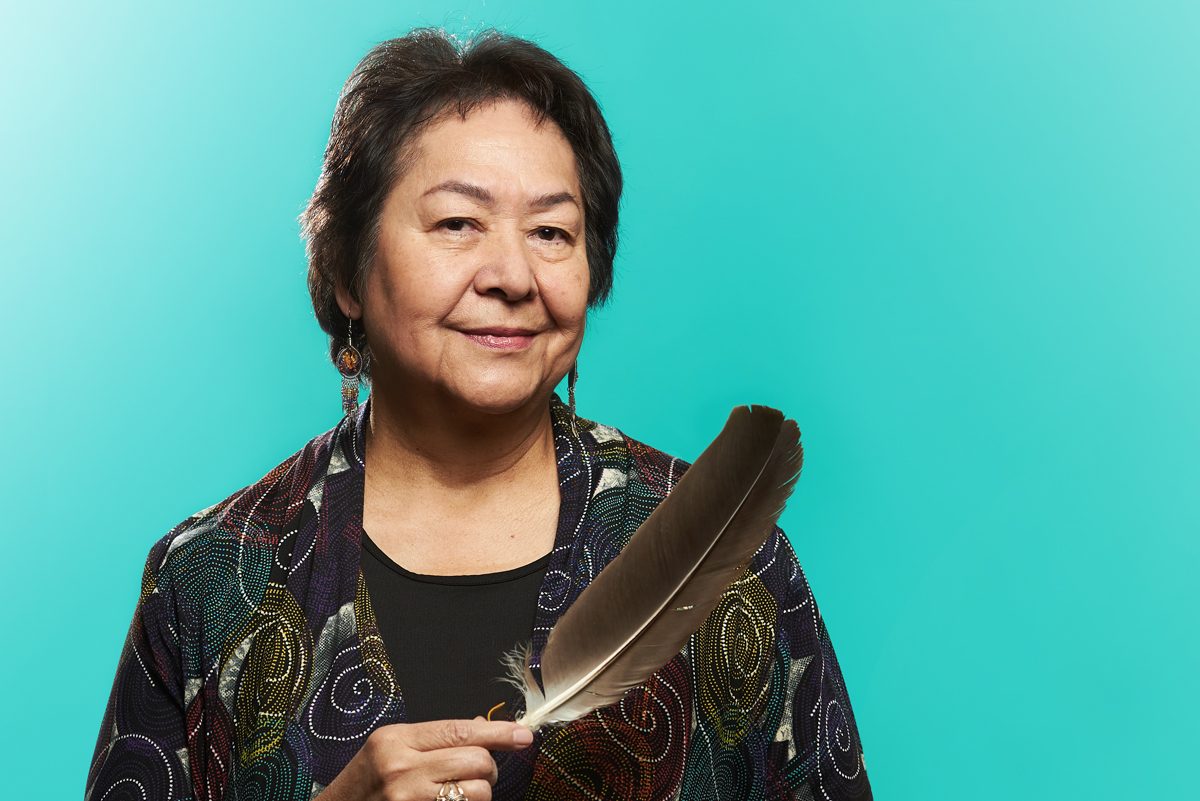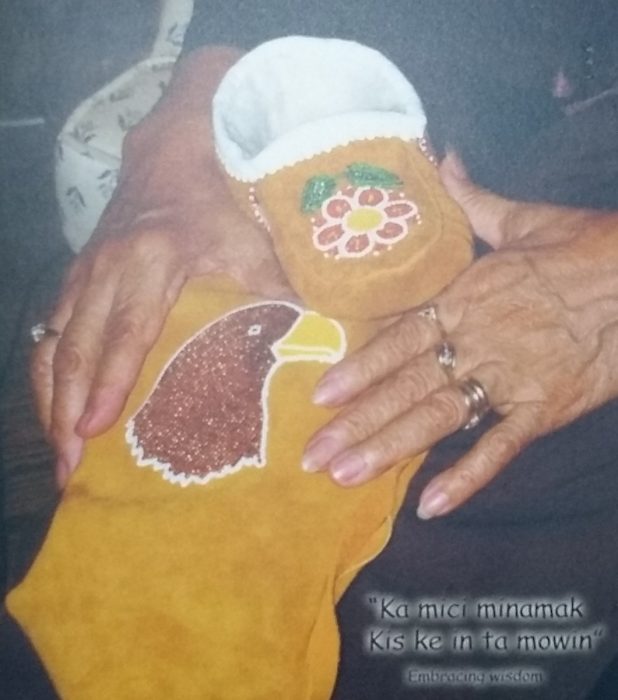
Photo of Dr. Laara Fitznor by David Lipnowski
Indigenous scholar reflects on her educational journey and resilience
Meet Indigenous Scholar: Dr. Laara Fitznor
When Dr. Laara Fitznor reflects on her journey through academia, she says “excitement, passion and plenty of cross-cultural challenges” are the first things that come to mind. It’s almost as if Fitznor is describing herself as an educator, but perhaps the journey and the person are not to be separated.
Fitznor came to the University of Manitoba as a mature student and studied sociology. “It opened my eyes to the level of oppression and colonization that attempted to take place,” she says. “I say attempted, because I don’t feel as though it was successful.”
This observation reads true to the teaching styles of Fitznor. She became a pivotal hire in the U of M’s ACCESS Program in 1982, and later in the Faculty of Education, with a focus on anti-racism, equity and cross-cultural education, and is currently in the process of retiring. Fitznor says she experienced challenges when trying to bring in more Indigenous staff and perspectives while working her roles. “I bumped into a lot of invisible walls. Those walls have to deal with ― what we call in today’s terms ― white privilege, colonization, assimilation or conversion.”
It has always been a high priority for Fitznor to incorporate Indigenous pedagogy into the education system, such as Elder teaching and talking circles. In fact, Fitznor played an influential role when she developed a new position for Aboriginal Education in the Ontario Institute for Studies in Education (OISE) while obtaining her doctorate degree at the University of Toronto. “I am not here to go by anyone else’s course,” she says.
Living in cohabitation with the land
Fitznor’s upbringing plays an influential role in her academic career. As a member of Nisichawaysihk Cree Nation, Fitznor was largely raised in the boreal forests of Wabowden, Manitoba. She immediately learned to respect the land from an early age, and laughs as she recalls her duty to check rabbit snares at 5 a.m. before school.
With a close relationship to the land, she describes herself as “being in cohabitation” with it. While living in the city can compromise or challenge this relationship, Fitznor says we can maintain our connection by working it into academia. “We can write about it, and talk about it. It’s like language,” she says. “If you don’t speak it, you’ll lose it.”
Fitznor’s family has a long history of medicine picking. She and her sister maintain this tradition, and it is high priority that Fitznor’s daughter also learns it. “Medicine picking has been honoured in my family,” she says. “And we do tobacco offerings every time we pick anything or hunt anything on our land.” This is one way Fitznor says she has learned how to be a participant of the land, adding that “if you do not treat the land and water with respect, it will not treat you with respect in reciprocity.”
Institutional improvements and Indigenous relations
While her journey through academia has seen many shifts between her time as a mature student to faculty, Fitznor acknowledges that structural change still needs to occur. “If you do not keep the heart and soul of Indigenous thinking, culture and language at the centre, change is always going to feel Canadian-centric,” she says.
Many universities are in the process of evaluating what changes need to be considered when creating campuses that are positive learning environments for Indigenous students, staff and faculty. Fitznor describes the many ways in which Indigenous people are expected to shift into institutions, and notices that it’s never the other way around. “I think it can happen,” she says. “We need allies and people who have principles that align with ours on certain subjects.” When asked what a good ally looks like, Fitznor says the work needs to go further than the performance alone. “It’s those who are not afraid to get their hands dirty with us.”
Meeting Indigenous students where they are
As Indigenous staff and faculty, it’s important to understand that some students come into institutional settings and academia without their traditional teachings, she says. “We cannot assume that everyone knows their traditions,” she continues, “but we can assume that most have experienced racism.”
Acknowledging that some people have the ability to “pass” – a term used to describe people of colour with lighter features – Fitznor says that once you align yourself as an Indigenous person, you can expect racism to follow. “We need to continue providing strategies, tools and supports that remind [students] that they have their voice, and their resiliency, and to not let the institutionalized racism go to the wayside,” she says.
“I tried to be courageous in my walk and avoided feeling intimidated by my professors or fellow students,” Fitznor recalls of her student experience. “I could see the racism and challenged and countered any oppression I encountered.” Though this wasn’t always easy, Fitznor said she vowed to never let it slip past her.
The future
Laughing when asked what the future holds, Fitznor responds with, “Well, I’ll still be Cree!”
Fitznor has plans to make more time for writing, and perhaps more dear to her, crafting. “I come from a long line of crafters,” she says. “But academia didn’t always allow me time to continue that.” Fitznor acknowledges her mother’s history of crafting while displaying her own modesty as she says, “I could never do it like her.”

Submitted photo. Beaded artwork by Dr. Fitznor’s mother.
Fitznor also says that Indigenous people never really retire because of the familial ties and support systems they build in spaces they occupy. “There’s still so much to do,” she says. Not concerned about a set schedule, Fitznor ended with a gentle reminder. “We don’t have time. We have the world.”
Dr. Laara Fitznor, (Nisichawaysihk Cree Nation) teaches Aboriginal/Indigenous Education and Cross Cultural Education in the Faculty of Education, U of M. She grounds decolonizing and bridging pedagogies in her work where people learn to challenge past wrongs, coexist and collaborate in a way of transformative possibilities toward relevance, respect, reciprocity and responsibility.







It’s been such a privilege to walk alongside you in the Faculty of Education over the years. Thank you for sharing your story here and all your stories over the years! Great photo, too!
All the best,
Charlotte